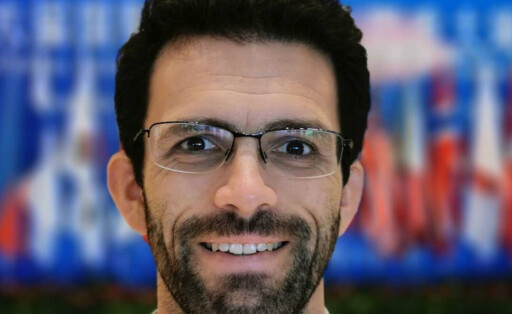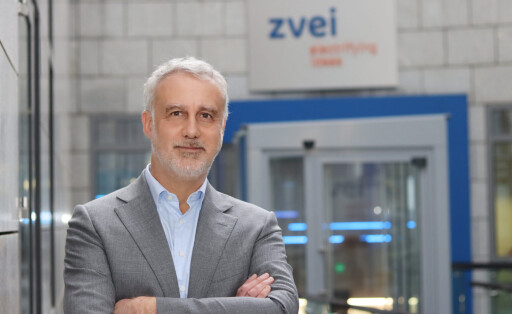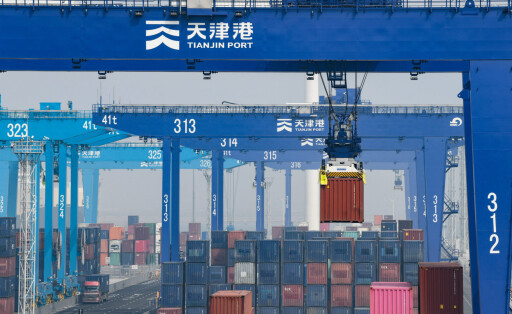Trade with China is an important economic factor for many countries. The People's Republic is the second largest trading nation in the world after the USA. The Table.Media editorial team has all the current trade news.
Trade news: is China a trading nation?
China is one of the world's largest economic powers. In 2020, the gross domestic product (GDP) of the People's Republic was around 13.2 trillion euros. Despite the Corona crisis, an increase of 2.3 percent compared to the previous year. For the first time in the country's history, GDP exceeded 100 trillion yuan. In the fourth quarter of the year in particular, China was able to make up for many of the losses incurred during the past crisis with a growth rate of around 6.5 percent. China was also able to expand its position as an economic power in world trade. The People's Republic was the only major economic nation ever to record growth in foreign trade in 2020. Compared to the previous year, this grew by 1.9 percent to 4.1 trillion euros (32.2 trillion yuan). Because exports increased by four percent while imports decreased by 1.1 percent, the People's Republic of China generated a trade surplus of about 48 billion euros (3.7 trillion yuan) in 2020. This gave the People's Republic a 14.5 percent share of world exports.
Who are China's most important trading partners?
Exports are the most important factor for China. In 2009, China was the world export champion for the first time. A title that until then had mostly been held by the USA, Japan or Germany. In 2020, the People's Republic exported more machinery and equipment than Germany for the first time. The most important customer country for China is the USA. It accounts for 17 percent of Chinese exports. This is followed by Hong Kong with ten percent and Japan with six percent. According to the current five-year plan, the People's Republic wants to reduce imports. More value is to be added in China. This fits in with the fact that imports actually fell by 1.1 percent in 2020. Most of the goods and services that China imports come from South Korea. Nine percent of all imports come from there. Japan is second with eight percent. Australia, Germany and the USA share third place with a seven percent share of China's imports.
What is imported from China to Germany?
Chinese foreign trade is of particular importance to Germany. This is because the People's Republic of China is Germany's most important trading partner. In 2020, goods worth 212.1 billion euros were traded between the two countries. Because goods worth 116.3 billion euros were imported, but exported for only 95.8 billion euros, this results in a trade surplus of 20.5 billion euros for China. Germany therefore imports more goods from China than it exports. But what does Germany trade with China? The most important import goods by far were data processing equipment, electrical and optical products such as computers or consumer electronics, and batteries. Electric motors and household appliances also come to a large extent from the People's Republic. Germany exports mainly machinery, automotive parts, electrical engineering and chemicals to China.
Why does Germany import from China?
If we look only at trade in goods and leave out services, China is the European Union's most important trading partner. In 2020, the EU imported goods worth 383.5 billion euros from China. In the same period, EU states exported goods worth 202.5 billion euros to China. Within the EU, Germany is China's most important trading partner. Including services, however, the USA is still the EU's most important trading partner. Because of the strong trade relations, the European Union has concluded the EU-China Investment Agreement (CAI) with the People's Republic. China benefits from the open market for its exports to the EU, while European companies are still subject to massive restrictions and discrimination in China. The CAI and the increasing volume of trade are intended to level the playing field and make it fairer.
What are the policies of China?
China's politics are shaped exclusively by the Chinese Communist Party (CP). It has the sole claim to leadership. All other bodies, which are typical in democracies for the formation of opinion and will, must subordinate themselves to the CP's program. Political organizations, the media, civil society and religious groups are therefore subject to strict censorship and permanent control. The People's Republic of China is thus an autocratic one-party state. Party headquarters are located in Beijing. The current president is Xi Jinping. The Communist Party has made the socialist market economy with Chinese characteristics the country's economic order. The idea is to combine the market, private enterprises and the planned economy into a common system. The private sector accounts for the largest share of the Chinese economy - more than two-thirds of total output. However, many private entrepreneurs manage companies that nominally belong to the state. Also, the government always retains control over important industries.
How is the economy structured in China?
For many experts, the economic system of the People's Republic of China is not socialism, but capitalism. This is a view shared by many Chinese. From the perspective of the People's Republic, a socialist planned economy could not be established until there was a functioning economy based on the market economy model. China's restructuring toward capitalism began in 1978 with the decollectivization of agriculture, the admission of foreign direct investment, and privatization and liberalization of trade. Nevertheless, China's economy, and thus its trade, must be guided by the Communist Party's five-year plans. Currently, the 14th Five-Year Plan is in effect. The concept of dual circulation is laid down in this plan. According to this, the Chinese economy consists of an internal cycle (domestic economy) and an external cycle (foreign trade). The long-term strategy is to strengthen domestic trade in order to become less dependent on imports of any kind.
Is there domestic trade in China?
In terms of gross domestic product (GDP), China is the second largest economy in the world behind the United States. However, the People's Republic also has 1.4 billion inhabitants. Measured in terms of purchasing power-adjusted GDP per capita, the People's Republic therefore only ranks 80th, roughly on a par with Turkmenistan and Suriname. The dual-circulation policy is intended to strengthen domestic trade in order to eliminate this deficiency. The dual circulation strategy is primarily intended to strengthen agriculture, industry and services and to fuel domestic consumption. China also wants to become less dependent on food, oil and gas imports through innovation. Strong local companies are to achieve technological leadership in important future areas. In addition, incentives are to be created for foreign companies to produce certain products, such as machinery, in the People's Republic instead of exporting them to China.
What goods must China import?
The Communist Party emphasizes, however, that it does not want to seal off China. That would not make sense either. After all, the People's Republic's agricultural sector in particular is dependent on massive imports. China is the largest importer of soybeans and meat. The country is also one of the leading buyers of dairy products, wine and various other foodstuffs. The two-cycle policy is also aimed at being able to produce more complex goods itself in the future. Machinery, electronics, vehicles, integrated circuits and chemicals are still among the most imported goods in the People's Republic. China's most important imported goods also include crude oil, iron ore, rubber, plastics and textiles. China's top imported goods in 2019 were:
Crude oil (about 8.2 percent of import volume): this is also due to the expansion of refineries in the People's Republic.
Integrated circuits (about 8 percent): because China produces enormous quantities of electronics, the country needs many integrated circuits that cannot be produced domestically on this scale.
Gold (around 4.2 percent): The People's Republic is the largest importer of gold. This is also because it serves as a security currency for many investors, while investors in the U.S. in particular rely on the capital market.
Iron ore (around 3.8 percent): The price of iron ore fell in 2019. This raw material is mainly needed in steel production. Producers in China took advantage of the fallen prices and imported large quantities.
Cars (around 3.8 percent): Although all relevant manufacturers have factories in China, China still has to import premium vehicles in particular.
What are China's most important exports?
For some years now, China has been the world's leading exporter. This is also due to the fact that foreign companies are subject to enormous restrictions. Free trade is not possible in the People's Republic. The EU-China Investment Agreement is intended to solve these problems in the long term. The most important export goods of the People's Republic of China are:
Electrical engineering and electrical appliances (around 27 percent of export volume): in 2019, this sector of the economy was responsible for exports worth around $671 billion.
Machinery and computers (about 17 percent): China is the world's largest exporter of machinery and computers. In 2019, exports reached a total value of US$417 billion.
Furniture and furnishings (around 4 percent): the People's Republic is also the world champion in this sector. No other country exports so much furniture and furnishings. In total, there were goods worth 99 billion U.S. dollars in 2019.
Plastics and plastic products (around 3.4 percent): plastic products landed in fourth place in the ranking of China's most important export goods in 2019.
Vehicles (around 3 percent): the automotive industry is one of the most important economic sectors in China. It is responsible for three percent of exports in 2019, landing in fifth place. 295,000 commercial vehicles and 725,000 passenger vehicles found their way abroad.
German trade news for China
The introduction of the two-loop policy, trade disputes with the United States and the expansion of the New Silk Road make trade in China one of the most important issues in the coming years. The China.Table editorial team provides all relevant trade news in China in German.





